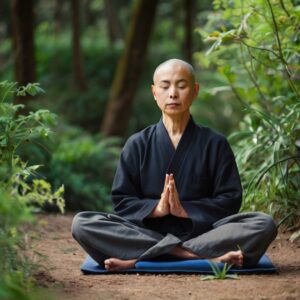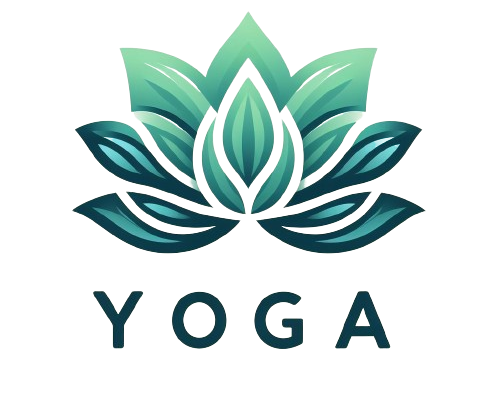Many individuals are turning to silent meditation retreats as a sanctuary of calm and a means to regain inner balance. These retreats offer a unique opportunity to disconnect from the external chaos and explore the depths of silence, leading to profound personal insights and a rejuvenated sense of well-being.
What Are Silent Meditation Retreats?

Silent meditation retreats are structured programs where participants commit to a period of complete silence, often ranging from a few days to several weeks. During this time, attendees engage in various forms of meditation, mindfulness practices, and sometimes yoga, under the guidance of experienced teachers. The primary rule is to maintain silence—both verbal and digital—which means no talking, writing, or using electronic devices.
Silence also encompasses a digital detox, meaning participants must abstain from using electronic devices such as smartphones, tablets, and laptops. This extensive period of silence encourages participants to turn their attention inward, fostering a deeper awareness of their thoughts, emotions, and bodily sensations. The retreat schedules are structured to guide participants through various practices that support their journey into silence and self-awareness. The day is divided into multiple sessions that include different forms of meditation such as seated meditation, walking meditation, and sometimes guided meditation. These practices help to cultivate mindfulness—a heightened state of awareness of the present moment. Many silent retreats incorporate mindfulness practices to further deepen the participant’s experience. These may include mindful eating, where participants are encouraged to eat slowly and savor each bite, fully engaging their senses. Yoga and gentle stretching sessions are also often included to help practitioners remain physically comfortable and to integrate the body with the mind.
The Benefits of Silence
Engaging in a silent meditation retreat can bring numerous mental, emotional, and physical benefits:
Mental Clarity: without the usual distractions and noise, the mind begins to settle, allowing thoughts to become clearer and more focused. This heightened clarity can spark creativity, problem-solving abilities, and a deeper understanding of personal issues.
Emotional Balance: silence provides a safe space to observe and process suppressed emotions. By sitting with these feelings without the need for expression, individuals often experience a sense of emotional release and balance.
Deep Relaxation: the absence of constant external stimuli and responsibilities allows for significant relaxation of the body and mind. This deep state of rest can improve sleep patterns, reduce stress levels, and enhance overall physical health.
Heightened Awareness: practicing silent meditation sharpens the senses and heightens awareness of the present moment. This mindfulness can lead to a greater appreciation for life’s simple pleasures and an increased ability to live in the “now.”
Types of Silent Meditation Retreats
Silent meditation retreats come in various forms, each with its unique approach and philosophical foundation. These retreats cater to different spiritual and personal development goals, offering participants a range of methodologies to explore inner tranquility and mindfulness. Here are some of the most popular types:
Vipassana, which means “insight” or “clear seeing,” is rooted in ancient Buddhist teachings. It aims to cultivate a deep understanding of the nature of reality through mindful observation.
Vipassana retreats typically last for ten days, although longer and shorter versions are available. Participants focus on observing their natural breath to anchor their concentration. As the retreat progresses, they are guided to scan their bodies, noting sensations without attachment or aversion. This practice helps in understanding the impermanent nature of physical and mental phenomena.
By observing sensations and maintaining equanimity, practitioners gain insights into the transient nature of experiences, thoughts, and emotions. This leads to greater self-awareness, emotional resilience, and a reduction in negative mental patterns such as craving and aversion.
Zen meditation, or Zazen, is a central practice of Zen Buddhism, which emphasizes simplicity, direct experience, and meditation as a path to enlightenment.
Zen retreats, often called sesshin (which means “gathering the mind”), can vary in length from a few days to a week or more. The primary practice is seated meditation, where participants sit in silence, focusing on their breath or a koan (a paradoxical question or statement used as a meditation tool). The retreats also include mindful activities like walking meditation, eating, and chores, all performed with full awareness.
The aim is to experience a state of “no-mind” (mushin), profound stillness wherein the mind is free from distractions and dualistic thoughts. This deep state of meditation can lead to profound insights and a direct experience of one’s true nature.
Christian silent retreats are often hosted by monasteries or retreat centers and are deeply rooted in Christian contemplative traditions. They seek to deepen one’s relationship with God through silence and prayer.
These retreats incorporate practices such as silent prayer, scripture reading, and contemplative exercises. Participants may engage in practices like the Lectio Divina (divine reading), an ancient method of prayerful scripture reading where one reads, meditates, prays, and contemplates on biblical texts.
The goal is to foster a deeper spiritual connection and understanding of Christian teachings. Silence is used as a tool to quiet the mind and open the heart to divine presence, leading to renewal of faith, inner peace, and spiritual growth.
Choosing the Right Retreat
Selecting the right type of silent meditation retreat is crucial for a meaningful experience. It’s important to consider personal spiritual beliefs, meditation experience, and specific goals such as stress reduction, spiritual growth, or self-discovery. Researching the retreat center, understanding the daily schedule, and knowing the background and approach of the teachers can help in making an informed choice.
The diversity of silent meditation retreats ensures that there is a suitable option for everyone, regardless of their spiritual background or personal goals. Each type offers unique pathways to achieving inner peace, self-awareness, and a deeper understanding of one’s true nature, all through the powerful practice of silence.
Preparing for a Silent Meditation Retreat
Participating in a silent meditation retreat requires some preparation to maximize the experience:
Clarify why you are attending the retreat and what you hope to achieve. Setting intentions can provide motivation and focus throughout the silent period.
Select a retreat that aligns with your spiritual beliefs or meditation practice. Research the teachers, the structure of the retreat, and the daily schedule.
Since retreats often involve long hours of sitting, it’s useful to engage in regular physical exercise beforehand to build stamina and flexibility.
Begin incorporating short periods of silence and meditation into your daily routine prior to the retreat. This acclimatization can make the extended silence more manageable.
